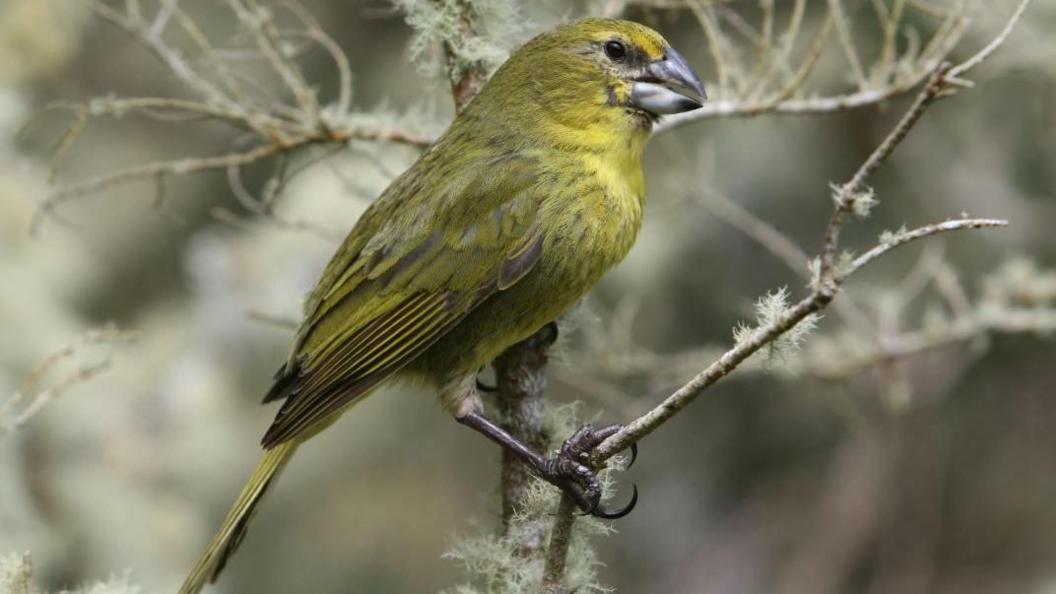The tiny wasp helping to save a rare bird from extinction

- Published
Scientists have turned to an unlikely creature to help save one of the world's rarest birds.
The bird, called Wilkins’ Bunting, is only found on a remote island in the South Atlantic.
It eats the fruit of the Phylica arborea, the island’s only native tree - however tree numbers were decreasing, putting the bird at real risk of extinction.
So, experts came up with an unusual solution, making use of a tiny wasp to protect the species.
More animal news
- Published3 October
- Published6 days ago
- Published3 October
What's happened?
The critically endangered Wilkins' bunting is only found on Nightingale Island, part of the Tristan da Cunha group of islands in the South Atlantic.
It feeds on the fruit of the island's only native tree, the Phylica arborea.
However, the trees have been affected by an invasive insect which was accidentally introduced to the island.
It secretes a liquid that weakens and eventually kills the tree.
In addition, the island was hit by huge storms in 2019, putting the Wilkins' bunting at even greater risk of extinction.
Wilkins’ Bunting birds are only found on Nightingale Island in the South Atlantic
A number of conservation charities, including the RSPB, decided to look for a way to help save the island's tree.
They found that a small parasitic wasp - called Microterys nietneri - was successful in controlling the insects, without having a negative impact on other species on the island.
The wasps were introduced on the island three years ago and experts have already seen positive signs for the rare birds as a result.
A survey earlier this year found that despite the island losing approximately 80% of its forest, Nightingale Island still has an estimated 60-90 pairs of Wilkins' bunting.
As part of the project to save the birds, conservationists also carried out forest recovery and replanting - which they say have also helped to stop decrease their population numbers.
And they now expect bunting numbers to stabilise and also have a chance to recover.
David Kinchin-Smith, from the RSPB, explained: "This project shows what can be achieved in turning around the fate of a threatened species.
"Steely determination, ecological expertise and a large helping of luck have all contributed to the success of this work, but hopefully we, and the wasps, have given the buntings a much-needed lifeline."
